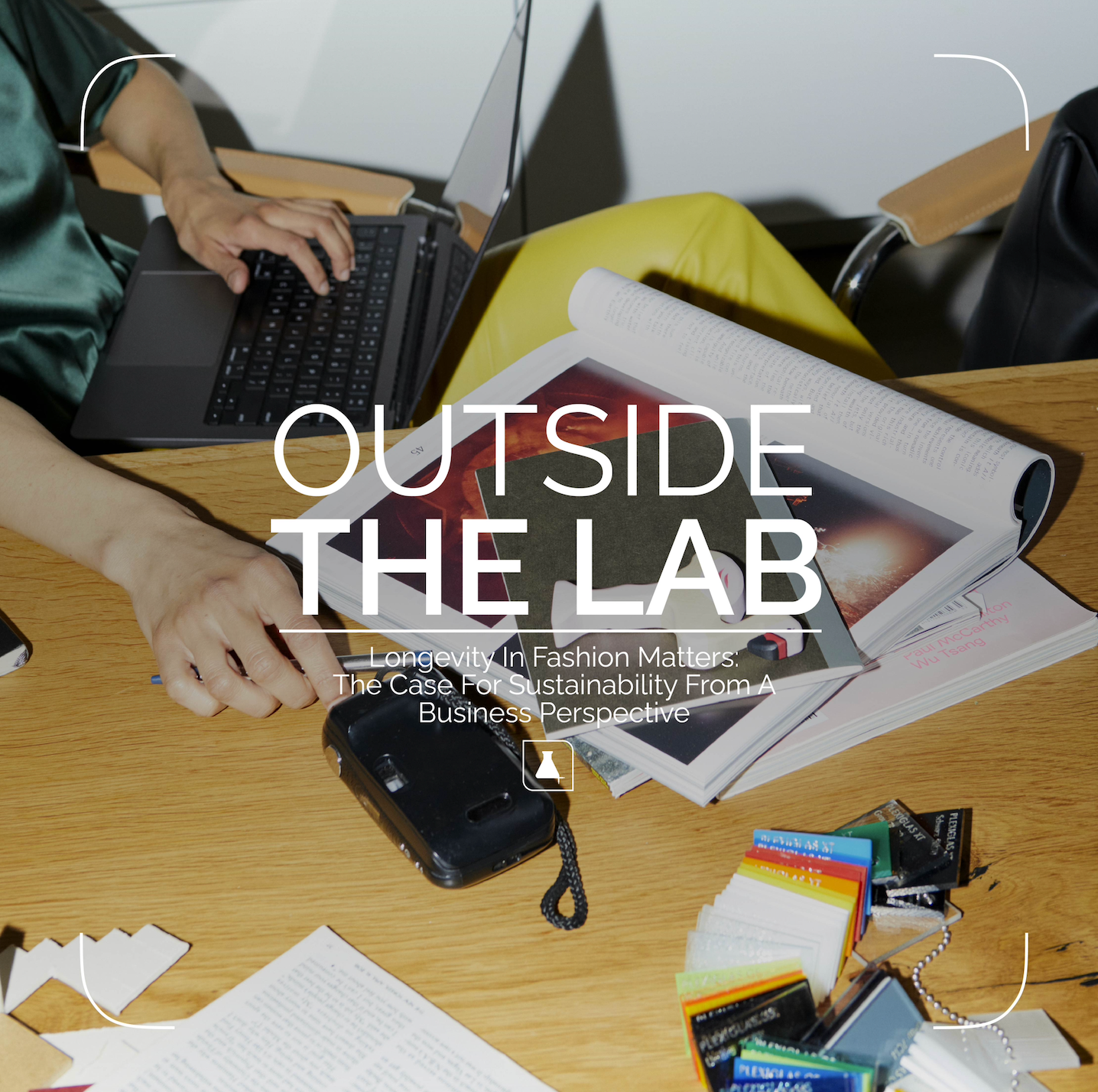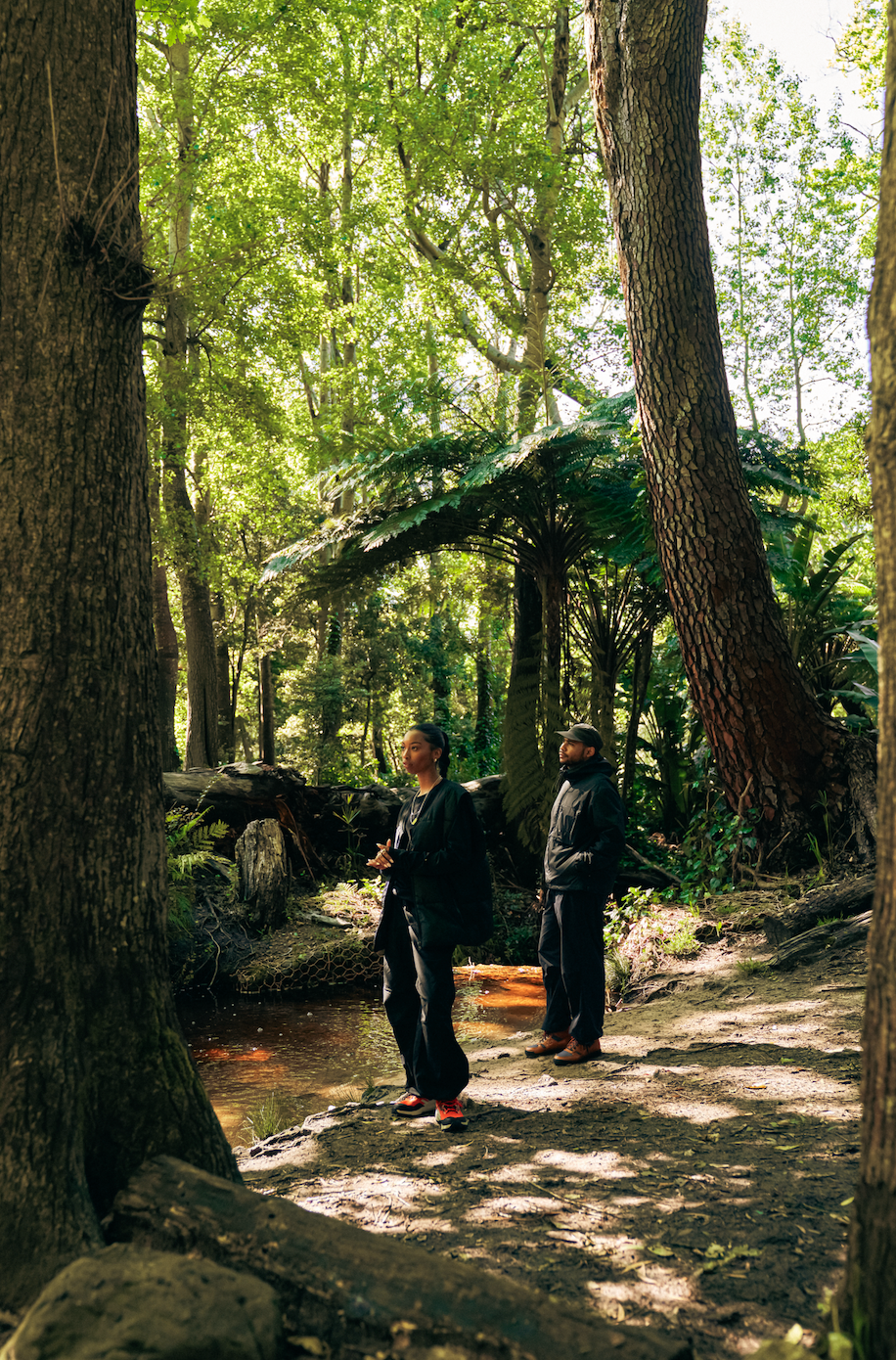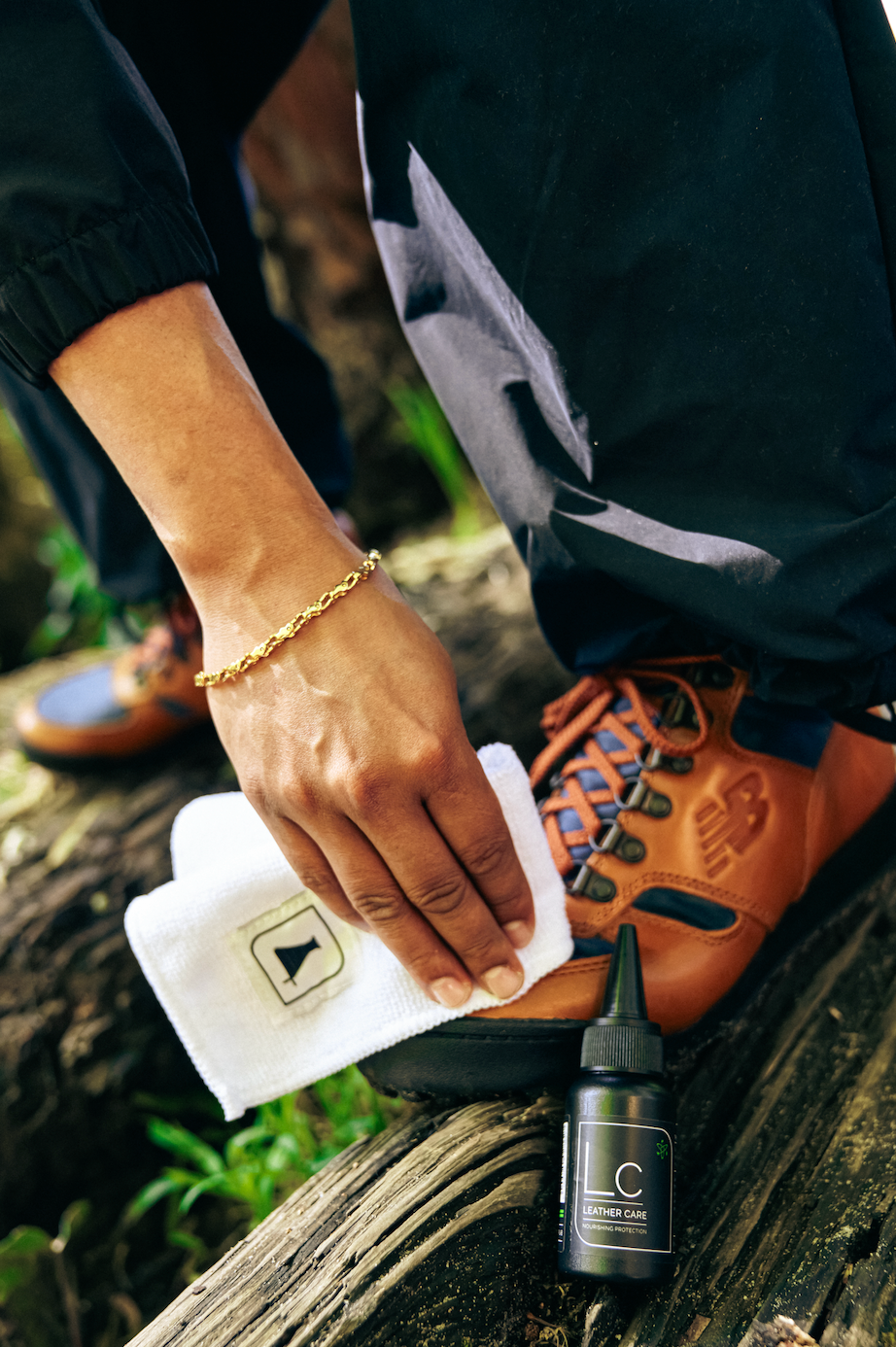Longevity In Fashion Matters - The Case For Sustainability From A Business Perspective
[ Story ]
Article

In a world of finite resources, operating businesses with infinite trajectories of growth has often meant depleting natural resources, exploiting human labour and contributing to unsustainable economic practices; in short, prioritising short-term gains over long-term planetary health. We argue, then, that sustainability is good business — better business — and integrating it as a key philosophical and actionable strategy has the potential to strengthen growth, beyond our current definition of it. Sustainability builds a kind of resilience that is yet to be fully realised in the market landscape.
At Sneaker LAB, sustainability is front of mind in everything we do, and choosing this path continues to show us that innovation is almost limitless in its ability to guide us through the unknown — led by an instinct to simply do the right thing, whenever we can.
At Sneaker LAB, sustainability is front of mind in everything we do, and choosing this path continues to show us that innovation is almost limitless in its ability to guide us through the unknown — led by an instinct to simply do the right thing, whenever we can.
Building a conscious community, centred around a company that one can truly be proud of is the dream, right? Sustainability goes beyond a moral obligation and while it's a material imperative for our future, the demand for sustainability is also a demand for forward-thinking. Requiring us to engage that innate human instinct to problem solve; sustainability is a catalyst for transformation — a world and an economy we could have only dreamed of a few decades ago.
Brands and businesses are more deeply woven into our lives than just simple economic transactions, with their positioning in our culture demonstrating immense power in our lives. Today, brand’s are part of shaping our values and influencing our identities; and our support for varying businesses are reflections of our inner-worlds, and our social signalling within our communities.


Our modern economy is shifting rapidly, and as consumers, we’re expecting more from brands. Just this year, WGSN declared ‘Nature As CEO’ as a key market trend, in which Nature is given ‘a permanent seat at boardroom table’, as they noted that “a study published by IBM in 2022 revealed that the importance of sustainability is growing for consumers. In the survey, 51% of consumers said it was more important today than a year ago. But it’s not just consumer desire that puts sustainability on the minds of brand leaders worldwide. Many brands understand the need to act to create a better future and their responsibility to do so, as well as the impact on their growth, as overconsumption and the exploitation of raw materials cause a shortage of resources and institutional support worldwide.”
With this shift in consumer attitudes, ignoring the growing expectation of sustainable business practices would be a total dismissal of evolving market demands and long-term business viability. Adaptation is key at this critical inflection point in the climate crisis.
With this shift in consumer attitudes, ignoring the growing expectation of sustainable business practices would be a total dismissal of evolving market demands and long-term business viability. Adaptation is key at this critical inflection point in the climate crisis.
We’re all about balance, and a good sustainable business strategy has the potential to achieve harmony between economic success, social responsibility, and environmental guardianship is the golden trinity. With economic sustainability, a company can, for example, focus on ensuring long-term profitability by integrating strategies that reduce operational costs — such as adopting energy-efficient technologies and investing in renewable energy to stabilise utility expenses — which can enhance its financial stability, reduce exposure to volatile energy prices, and build out a more resilient business model. With social sustainability, an emphasis on employee well-being by ensuring fair wages, safe working conditions, and opportunities for growth; respecting the innate dignity of each person within a company’s culture. The options are endless, and the strategies infinite.





Patagonia is a titanic case study in this context — a continual reference for strategists all over the world. When founder Yvon Chouinard made the outdoor-gear company’s first environmental commitment in 1986, he did so during a decade when excess and growth were our culture’s main focus — the 1980s was all about increased, rabid consumerism, no matter the impact. With Patagonia designed in its infancy (less than a decade into its founding) to continually take risks in integrating more and more sustainable practices, the company has amassed an estimated value of about $3 billion dollars, and is reported to bring in $100 million in revenue annually. As the Michigan Journal of Economics declared – ‘Patagonia Proves the Success of Sustainable Corporations’. As a certified B Corp Company (one of the gold standard certifications for ethical transparency), and as Gabby Land wrote for the MJE, “on top of this healthy revenue growth, Patagonia has managed to maintain its focus on ethical sourcing and employee well-being. This can be seen through its donation of 100% of its Black Friday sales to environmental causes in 2016, to provide many employee benefits. It’s no surprise that Patagonia earned a 151.4 on the B Corp Impact Assessment, while the median score for all B Corp companies is 50.9. Clearly, sustainability can and should go hand and hand with generating revenue and profit.”
In luxury fashion, Stella McCartney’s eponymous label is sustainability’s authoritative force. As the only luxury label to have never used leather, furs or any animal-based material — since its very beginning — Stella committed all the way back in 2006 to sustainability as the brand’s principal strategy. Stella McCartney’s positioning as a label has been so impactful, that it has gone on to influence broader changes and attitudes within luxury fashion — inspiring brands like Ralph Lauren, Gucci, Prada and following suit in adopting ethical regulations within their companies. Stella also champions policy and regulatory reforms, emphasising the need to incentivize sustainable business practices and support the decarbonization of the fashion industry. Her advocacy extends to improving human and animal welfare and promoting investment in innovative materials, aiming to drive broader industry change and support scalable solutions. Then, there’s her commitment through the Collab SOS Fund, a $200 million initiative backed by LVMH that she co-founded to support innovative startups and advanced technologies focused on climate solutions. This fund serves as a critical call to action, urging support for and adoption of groundbreaking technologies from companies dedicated to creating a regenerative and sustainable economy. This is just some of the latest in Stella’s nearly two decade career committed to sustainability; and that’s not mentioning being one of the first fashion brands to ever use bio-based fabrics, or use their production cycles to explore innovative ways to reduce harmful impact. And Stella McCartney’s latest revenue figure? A reported $50.8 million, annually.
In luxury fashion, Stella McCartney’s eponymous label is sustainability’s authoritative force. As the only luxury label to have never used leather, furs or any animal-based material — since its very beginning — Stella committed all the way back in 2006 to sustainability as the brand’s principal strategy. Stella McCartney’s positioning as a label has been so impactful, that it has gone on to influence broader changes and attitudes within luxury fashion — inspiring brands like Ralph Lauren, Gucci, Prada and following suit in adopting ethical regulations within their companies. Stella also champions policy and regulatory reforms, emphasising the need to incentivize sustainable business practices and support the decarbonization of the fashion industry. Her advocacy extends to improving human and animal welfare and promoting investment in innovative materials, aiming to drive broader industry change and support scalable solutions. Then, there’s her commitment through the Collab SOS Fund, a $200 million initiative backed by LVMH that she co-founded to support innovative startups and advanced technologies focused on climate solutions. This fund serves as a critical call to action, urging support for and adoption of groundbreaking technologies from companies dedicated to creating a regenerative and sustainable economy. This is just some of the latest in Stella’s nearly two decade career committed to sustainability; and that’s not mentioning being one of the first fashion brands to ever use bio-based fabrics, or use their production cycles to explore innovative ways to reduce harmful impact. And Stella McCartney’s latest revenue figure? A reported $50.8 million, annually.

So, the consequences of avoiding sustainability within business are potentially catastrophic (will there be companies in a climate destroyed wasteland?) while the reward for the risk in embracing it, could be huge. As a proudly Green Tag certified space, having our vision set on regenerative longevity and a positive impact in the world — socially, economically and ecologically — drives us to innovate and lead by example. We know it's possible, because we’re living it as a company. Here’s to a responsible and thriving future.


[ Follow ]



